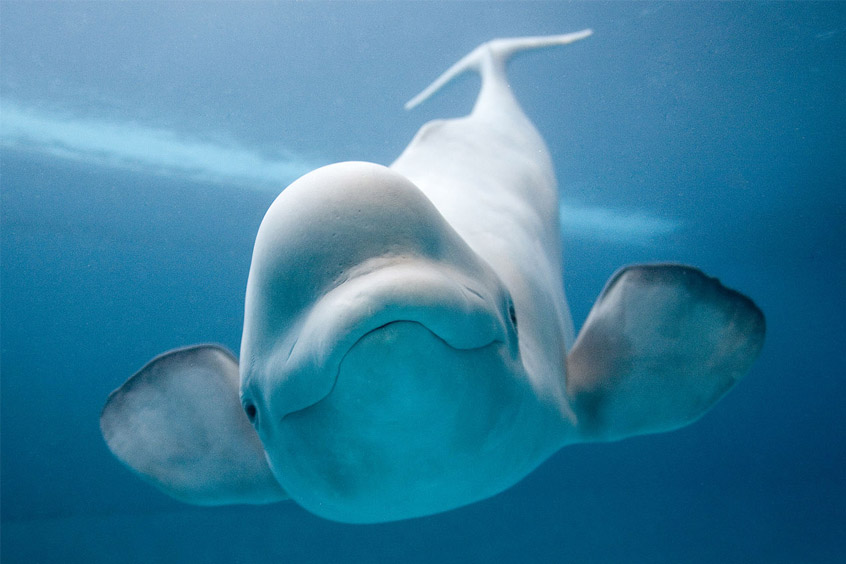SAMS news room
Beluga whales on the 'climate change' diet

A researcher at the Scottish Association for Marine Science (SAMS) has found evidence that marine species in the Arctic may have already been forced to alter their diets because of reducing levels of sea ice in the region.
Dr Thomas Brown has devised a method to measure how much of a species’ diet is derived from sea ice. Using the formula to monitor the eating habits of the beluga whale, he found a substantial change in how one community, based off Baffin Island, was getting energy from food. His findings have been published in the journal Limnology and Oceanography.
The Arctic’s population of beluga whale is already listed as ‘near threatened’ by the International Union for Conservation of Nature (IUCN). Because of overfishing and hunting that took place leading up to the 1980s, the Cumberland Sound community studied by Dr Brown is also described as ‘threatened’ by the Committee on the Status of Endangered Wildlife in Canada.
Dr Brown’s findings show that since 2000 these beluga whales and their prey, which are thought to be mainly Greenland halibut and Arctic cod, are adjusting to changes in the supply of food. He showed that, in contrast to before 2000, these fish and whales now appear to have an increasing reliance on energy sourced from open water algae, rather than the Arctic’s energy-rich sea ice algae that grows within the Arctic ice during spring.
Dr Brown said: “Some scientists are predicting that Arctic sea ice will disappear completely in the next 20 years or so, meaning this change is likely to be forced upon all Arctic animals.
“We know that carbon from sea ice algae is important for Arctic animals, but we need to quantify how much of that carbon is consumed in order to understand the full impact of sea ice loss.
“The Beluga whales in Cumberland Sound are in a sub-polar region, putting them on the front line of change in the Arctic. While their continued presence indicates they seem to be coping with these initial changes, there is a clear shift in the food web and ecosystem in this part of the Arctic Ocean.
“Have the beluga whales altered their diet, or has their prey changed the way they feed to cope with the changing climate? It is important that we also take steps to better understand how the other Arctic and sub-Arctic animals will cope with the coming change.”
Current trends in Arctic sea ice extent and thickness show decline, with the National Snow and Ice Data Centre reporting record low average monthly sea ice extents in the Arctic in January, February, April, May, June, October, and November in 2016, suggesting increasing influxes of Atlantic-derived waters into the Arctic Ocean as the cause.
